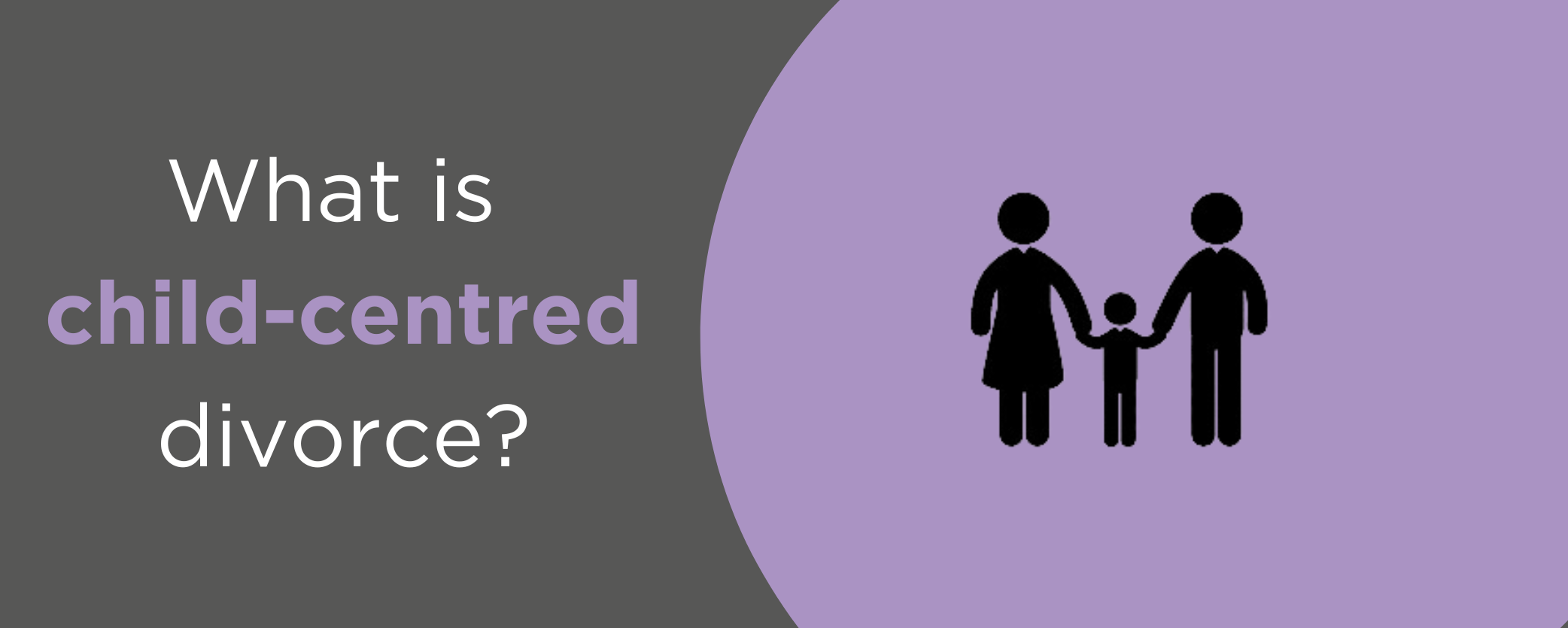- Basildon 01268244144
- Chelmsford 01245453800
- Colchester 01206217300
- London 020 4586 1280

In short, child-centred divorce focuses on children and their wishes and feelings remaining at the heart of the separation process. It is important to ensure divorcing couples or civil partners are able to remain child-focused when dealing with their separation. Mental health and wellbeing plays a prevalent role, so all the more reason to seek to separate from your partner amicably.
It can be seen far too often within practice that a child/ren are caught up in their parent's divorce or separation and the detrimental impact this can have on them long into their adult life. That is why it is important for a child’s best interests and their welfare to be at the forefront of your mind when dealing with all aspects arising from a divorce or separation. This could be in terms of settling the financial matters and ensuring the child is suitably housed or determining the appropriate contact arrangements for the future.
There are many individuals who will be impacted by a divorce or separation, including the couple themselves, family members and friends. However it is the child/ren who are often impacted the most.
As adults, it can be hard to appreciate that children do not have the same level of understanding and emotional intelligence as we do. Children of varying ages are impacted by divorce or separation in different ways. For example, older children may try to blame themselves for their parents separation, whereas younger children may express signs of behavioural problems at school or anxiety.
It is important to continue communicating with your child/ren throughout your separation. Communicating with them should be fun and light-hearted. Remember that some conversations should be kept between parents and are not appropriate for children to be involved in, for example negotiating matters or even still, trying to act as a mediator.
Be sure to reinforce to your child/ren that the separation is not their fault and that both parents still love them and that everything will be okay despite the change which is happening in their life.
Let’s explore some common questions concerning children upon separation below.
Do I have to pay child maintenance if it is 50:50 custody?
Within England and Wales, child maintenance is payable by the parent with lesser care of the child, known as the non-resident parent. It is calculated as a percentage of the non-resident parent’s gross income and there is a reduction in the calculation for the number of overnight stays the child has with the non-resident parent.
Parents are free to reach an agreement regarding the level of child maintenance directly or by applying to the Child Maintenance Service (CMS). If there is exactly equal daytime and nighttime contact with each parent, then parents may agree for no child maintenance to be payable with them each funding the children whilst in their care. However, cases can hinge on which parent is in receipt of child benefit being classed as the primary carer for child maintenance purposes, particularly in the view of the CMS. That said, each case is fact specific and the rules surrounding child maintenance can be complex. It is always best to seek your own independent legal advice as to your situation.
What is the most common child custody arrangement in the UK?
There is no one ‘perfect’ child custody arrangement. There is no set precedent in place which determines how often a child should have contact with either parent. Each case is fact specific and depends on the family’s circumstances.
When considering child arrangement issues, the court is focused on what is in the child/ren’s best interests and their welfare is the paramount consideration.
Typical examples of contact arrangements may be week on/week off contact, alternate weekends, alternating Christmas and New Year arrangements and sharing the school holidays.
Each arrangement is specific to a family and should be considered carefully to ensure it provides routine and structure for the family as a whole. It is therefore important to seek independent legal advice as to your individual circumstances.
At what age can a child decide not to see a parent?
As a result of divorce or separation, a child/ren may not wish to see one parent. There is no set age at which point a child can decide not to have contact with a parent. One of the many factors considered when determining child arrangements is the wishes and feelings of the child in light of their age and understanding. For example, a child who is 15 will have a greater expression of their feelings than a child who is 5.
However, where a child/ren express a desire not to see one parent, this can be a potential sign of parental alienation and needs to be considered carefully.
Parental alienation is a concept whereby one parent may seek to discredit the other parent in front of the child/ren which in turn makes the child/ren feel it is only safe to side with one parent and reject the other.
Final thoughts
All cases are fact specific and it is important to discuss your individual circumstances with one of our specialist family lawyers to see how we can help.
All our family lawyers here at Birkett Long are members of Resolution, an organisation committed to resolving disputes amicably. Resolution has prepared a useful document which we frequently share with our clients, called ‘Parenting Through Separation’ and a link to it can be accessed here . The leaflet contains useful hints and tips to consider when separating where children are involved and we often encourage clients to share this with the other parent if they feel it is appropriate to do so.
Should you require advice or assistance as a result of your divorce or separation, please contact me on 0330 818 3071 or katherine.parker@birkettlong.co.uk for a free 15 minute no obligation telephone consultation.



Comments